
To subscribe to the fortnightly ALGA News, please click here.
-
Major planning reforms brought forward to support the West Australian Government’s economic response to Covid-19 have passed through State Parliament. The reform centrepiece is a new development application process for significant projects that will be in operation for the next 18 months. Significant development will now be defined as: development proposals with an estimated cost+
Posted 26 June, 2020 -
The Townsville City Council is to receive $145,00 in State and Commonwealth funding to buy five trailer-mounted generators to maintain services in areas susceptible to flooding, tidal inundation or sewer overflows. The Cairns Regional Council will receive $119,000 for a satellite trailer to supplement the communication networks and restore connectivity during network outages. These and+
Posted 26 June, 2020 -
The NSW Government will look at creating “greater flexibility” in the current rating system to allow councils to generate the income needed to support population growth. This would include creating additional rating categories and greater use of differential rating within urban residential rating systems. The proposal follows the Government’s decision to decline Independent Pricing Regulatory+
Posted 26 June, 2020 -
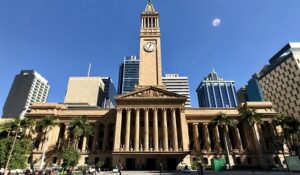
The Brisbane City Council has been allocated $11.7 million under the Federal Government’s $500 million Local Roads and Community Infrastructure Program. Other sizeable allocations have been made to the City of Gold Coast ($5.9 million), Moreton Bay Regional Council ($5 million), Toowoomba Regional Council ($4.1 million) Logan City Council ($3.5 million), Mid-Coast Council ($3.4 million),+
Posted 26 June, 2020 -
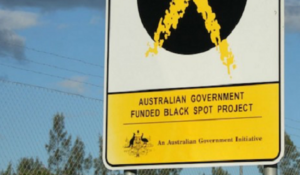
The Federal Government supports more money for the Black Spot Program and an increase in funding for projects in regional and remote areas. However, it remains detached about revising the definition of “black spot” to account for the dispersed nature of accidents in remote and regional areas, saying the program is sufficiently flexible to fund+
Posted 26 June, 2020 -
Is Local Government going to be part of the solution, or part of the problem, as the Commonwealth responds to a looming budget blowout and the nation’s first recession in 29 years? As councils step up to create new jobs in parallel with minimising rate rises (a tough ask) are we to be assisted by+
Posted 19 June, 2020 -
The Bureau of Statistics is soliciting local government involvement in consultations on the content proposed for collection in the 2020-21 Agricultural Census. The census is undertaken every five years to provide benchmark national, state, and sub-state data to inform Australian agriculture. The starting point for consultation is a proposed reduction in content (in comparison to+
Posted 19 June, 2020 -
Seventeen microgrid feasibility studies in West Australian and Northern Territory indigenous communities have received $19 million under the Regional and Remote Communities Reliability Fund. The funding has been allocated under Round One of the $50 million initiative established last year to provide more reliable, secure, and cost-effective energy supply options for regional and remote communities.+
Posted 19 June, 2020 -
The Women’s Leadership and Development Program – which supports women working in local government, among other things – has received $1.8 million in new funding. Four successful grant recipients will receive a portion of the funding this financial year (2019-20) to deliver on projects targeted towards achieving women’s economic security, and supporting women during the+
Posted 19 June, 2020 -
The first meeting of the Smart Beaches Community of Practice (CoP) will be conducted by video-link on 23 June 2020 from 2-3pm. The Smart Beaches CoP has been established for local councils to share knowledge, establish best practice approaches and support collaboration of smart technology to improve beach safety. Lake Macquarie City Council is leading+
Posted 19 June, 2020 -
NSW council elections due later this year but postponed because of coronavirus health concerns have been rescheduled for 4 September 2021. Local Government Minister Shelley Hancock announced the new date this week, saying current councillors will continue to hold their civic offices until the rescheduled elections are held. An order has been published in the+
Posted 19 June, 2020 -
$15 million is being fast-tracked under South Australia’s Regional Growth Fund for projects to aid regional economies affected by Covid-19 restrictions. Grants from $50,000 on up to $2 million are available for projects which “provide enduring economic benefits and growth for regional South Australia”. Applications will be accepted from individual commercial enterprises, incorporated associations, and+
Posted 19 June, 2020 -
Eleven councils will develop a Council Accelerated Assessment Program as part of the NSW Government’s efforts to fast-track planning decisions during the Covid-19 crisis. Councils that agree to run their own programs will receive tools, guidance and support from Department of Planning, Industry and Environment (DPIE). They also get direction and support from the state+
Posted 19 June, 2020 -
ALGA has made preserving Financial Assistance Grants and restoring FAGs funding lost in the 2014-15 indexation freeze a key outcome in its Strategic Plan 2020-23. The new plan, which will replace the Strategic Plan 2017-20, also includes detailed initiatives to: Secure increased Roads to Recovery funding to $800 million annually; Advocate for additional stormwater, water+
Posted 19 June, 2020 -
ALGA has welcome proposals to direct Mobile Black Spot Program funding towards regional and remote areas hitherto considered commercially unviable by telco providers. In a submission to a discussion paper on the design of the next round of the Mobile Black Spots Program – Round 5A – ALGA repeated its long-standing position that people in+
Posted 19 June, 2020 -
Local Government NSW has asked the Berejiklian Government to clarify an election promise to take back 15,000km of regional roads from councils. The Government announced in February 2019 that up to 15,000km of regional roads would be transferred to the state as part of a broader support package enabling local councils to better manage and+
Posted 19 June, 2020 -
Sixty regional airports will receive a share of $41.2 million in federal funding to help the aviation industry recover from the COVID-19 pandemic. Federal Minister for Infrastructure, Transport and Regional Development Michael McCormack announced funding for the projects this week under round 1 of the Regional Airports Program. They include $4.5 million for a project+
Posted 19 June, 2020 -
National Bushfire Recovery Coordinator Andrew Colvin has applauded local councils’ quick and effective use of emergency funding to provide community support. In an update on recovery efforts, Mr Colvin said vital support was being provided by an array of council projects, and “as further councils report on their activity we will consolidate this information and+
Posted 19 June, 2020 -
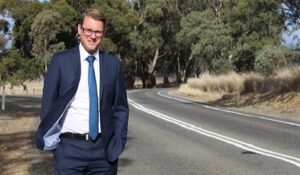
South Australian Local Government Minister Stephan Knoll will be able to limit council rate increases under new legislation introduced into State Parliament this week. The Statutes Amendment (Local Government Review) Bill will give the Minister the power to direct a council to cap its rates if “independent advice” deems they should be capped. A rate-monitoring+
Posted 19 June, 2020 -

Better public understanding of 5G is needed if the new technology is to deliver on its promise of a “generational leap” in connectivity and innovation, a Federal Parliamentary report says. The report into the deployment, adoption and application of 5G mobile technology – begun by the House of Representatives’ Standing Committee on Communications and the+
Posted 19 June, 2020 -
Two weeks have passed since news broke of the most far-reaching federation governance reform in nearly 30 years: the abolition of COAG in favour of a broadening of the Covid-19 National Cabinet initiative. Local Government’s shock exclusion from National Cabinet was, we said at the time, a missed opportunity to add impetus to the economic+
Posted 12 June, 2020 -
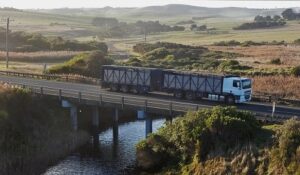
A national project to help local government road managers assess bridges, culverts and other assets on key local roads will begin shortly. Run by the National Heavy Vehicle Regulator with $7.96 million in Commonwealth funding, the project is the pilot phase of the Strategic Local Government Asset Assessment Project (SLGAAP) announced in 2019. It is+
Posted 12 June, 2020 -
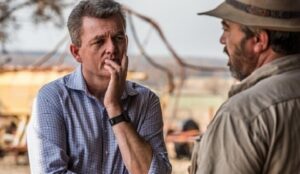
Changes need to be made to limit confusion over disaster recovery payments, the Royal Commission into National Natural Disaster Arrangements has heard. A “no wrong door” approach and a one-stop shop principles would help deliver relief quickly to victims, National Bushfire Recovery Agency coordinator Andrew Colvin said. “It would be ideal that a victim of+
Posted 12 June, 2020 -
More than $13 million is being made available through the Queensland Resilience and Risk Reduction Fund to help local communities better prepare for future disasters. “I encourage Queensland councils, government departments and not-for-profits to think outside the box when it comes to disaster resilience and risk reduction and take advantage of this funding,” Queensland Treasurer+
Posted 12 June, 2020 -
Six peri-urban councils will be able to access Victoria’s Growing Suburbs fund for the first time after the State Government said it would top up the fund with an extra $25 million. The councils that will now have access to the fund are Baw Baw, Golden Plains, Macedon Ranges, Moorabool, Bass Coast and Surf Coast.+
Posted 12 June, 2020 -
Australia’s nascent hydrogen industry could be supported by co-locating hydrogen production at wastewater treatment plants, says Yarra Valley Water. A new paper co-produced by the corporation and Jacobs consulting engineers uses the Aurora wastewater treatment plant as a case study to explore the relationship between both outputs from electrolysis – hydrogen and pure oxygen. It+
Posted 12 June, 2020 -
The WA State Government has earmarked $319 million to build, buy, renovate, and maintain social housing as part of a new $444 million housing stimulus package. The social housing component of the package will see 1500 homes refurbished, around 250 dwellings built, and a regional maintenance program delivered for up to 3800 homes – including+
Posted 12 June, 2020 -
South Australia’s Planning and Design Code will begin in the state’s rural areas on 31 July, the SA Planning Commission confirmed this week. The code is already operating in outback areas (phase one of the reforms), and the commission says that when phase two begins, the code will be accessible via a modern ePlanning platform+
Posted 12 June, 2020 -
The Western Australian Planning Commission is inviting councils to apply to use developer cash contributions to fast-track new community infrastructure projects. Under WA’s planning framework, developers progressing a subdivision can be granted permission to provide cash payments to local governments for reinvestment in public open spaces, in lieu of setting aside land in a subdivision.+
Posted 12 June, 2020 -
John (“Tractor”) Ferguson, who began his career as a grader driver for the Bulloo Shire and later became its mayor, has been awarded a Medal of the Order of Australia (OAM). Mr Ferguson was one of 12 serving or retired councillors who were recognised in the 2020 Queen’s Birthday Honours for their services to local+
Posted 12 June, 2020 -
Public consultations on four proposed changes to the way governments set heavy vehicle charges – and invest the proceeds – are planned in coming months. The proposals agreed to by the Transport and Infrastructure Council (TIC) have four broad elements: service level standards, expenditure planning, the independent setting of heavy vehicle charges, and the hypothecation+
Posted 12 June, 2020 -
One hundred and sixty-three new local infrastructure and community projects in drought-affected areas have received funding under Round 4 of the Building Better Regions Fund. The local infrastructure projects slated to receive $207 million include: Tenterfield Water Treatment Plant replacement, NSW ($2,645,000); Disability Respite Care Facility in Goondiwindi, Qld ($589,523); Construction of Ravensthorpe Cultural precinct+
Posted 12 June, 2020 -
Remember our “last” road safety crisis – 1200 road deaths a year and flatlining? And serious injuries (hospital admissions) approaching 40,000 a year and rising, not falling, despite 10 years of road safety effort and billions of dollars spent on road maintenance and upgrades. And before we point the finger at other governments, 30 percent+
Posted 5 June, 2020 -
Wine and spirits bottles should be added to South Australia’s container deposit scheme to cut down on dumping costs and improve recycling rates, East Waste says. A subsidiary of seven Adelaide metropolitan councils, East Waste is concerned that the bottles often break in bins, contaminating other recyclables such as paper and cardboard. The call comes+
Posted 5 June, 2020 -
The Productivity Commission is to inquire into how governments are progressing in achieving the objectives and timelines of the National Water Initiative. In its 2018 report on national water reform, the PC found that Australia is managing its water resources well given a dry and highly variable climate and the importance of water to the+
Posted 5 June, 2020 -
A discussion paper on how to better incorporate Aboriginal cultural elements into future planning decisions in NSW was released this week. Department of Planning, Industry and Environment Secretary Jim Betts said the Designing with Country Discussion Paper provides an opportunity to share ideas on how to better incorporate Aboriginal cultural elements into future planning decisions.+
Posted 5 June, 2020 -
Road and maintenance works across NSW are being brought forward as part of the state government’s $2.3 billion Covid-19 package announced in March. The more than 70 regional road projects that are underway, or about to be started, are worth around $100 million according to Regional Roads and Transport Minister Paul Toole. Projects already+
Posted 5 June, 2020 -
Commonwealth-State/Territory Disaster Recovery Funding Arrangements are to be reviewed to ensure that assistance under the program is fair and equitable. The review will examine how each state applies the DRFA and whether the program should be adjusted to deliver more equitable, needs-based, assistance for all Australians, regardless of where they live. Emergency management ministers agreed+
Posted 5 June, 2020 -
The Water Services Association of Australia says wastewater and stormwater infrastructure investment could provide flow-on benefits for Covid-19 recovery. In recent months, several regional urban water utilities have supplied more water to support local businesses increase production to replace imports, the WSAA said in a recent submission to the National Covid-19 Coordination Commission. “During the+
Posted 5 June, 2020 -
A failure to win and maintain a social licence in the infrastructure sector can lead to extreme community backlash and costly delays, a new paper has warned. Where governments and businesses have adequately developed and maintained their social licence to operate, and earned the trust of the community, however, they are able to deliver assets+
Posted 5 June, 2020 -
Councils need more funding to provide parks and open space for apartment residents, the Australian Housing and Urban Research Institute says. Developer contributions and voluntary agreements are too uncertain to ensure good results, according to a new AHURI report. “We need to get baseline infrastructure in place no matter what,” said Laura Crommelin, a research+
Posted 5 June, 2020 -
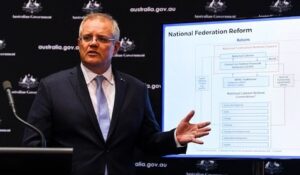
Failure to include the Australian Local Government Association in the National Cabinet is a lost opportunity to drive jobs growth and economic reform at the local level, President David O’Loughlin said last week. His comments followed Prime Minister Scott Morrison’s announcement on 31 May that the Council of Australian Governments had been abolished and replaced+
Posted 5 June, 2020 -
IoT Alliance Australia wants to understand what skills developments are needed to advance the adoption of Internet of Things technologies. The peak industry body is working with education providers to develop an IoT “skills barometer” and to use this to identify where to focus development of the IoT skills needed in Australia. The IOT skills+
Posted 5 June, 2020 -
Scott Phillips, a two-decade veteran of local government, has been appointed Local Government NSW’s new chief executive. Mr Phillips is currently filling a locum position at Uralla Shire Council. He was chief executive of Sutherland Shire Council from 2015-18, heading up 1800 employees and managing an annual operating budget of some $250 million. Before that,+
Posted 5 June, 2020 -
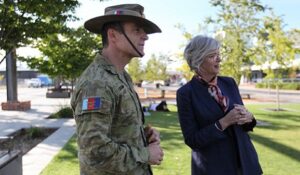
Local Government’s “remarkable capacity to deliver in times of disaster and other events” has been stretched by drought, flood, fire and Covid-19, Federal Parliament heard this week. Major-General Andrew Hocking, the deputy coordinator of the National Bushfire Recovery Agency, told the Parliamentary Inquiry into Regional Australia that “in terms of manpower in local councils, horsepower+
Posted 5 June, 2020 -
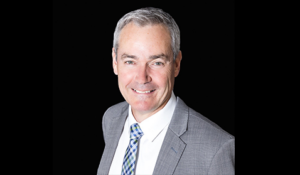
National Cabinet has proven useful in tackling Covid-19 head on, and it could expand to take on job creation, population and infrastructure planning, freight productivity, recreation and sport, culture and arts, social cohesion, aged care, childcare, ending domestic violence – and many more areas where local government plays a key role and therefore must be+
Posted 29 May, 2020 -

Museums, galleries, and libraries will be allowed to reopen from 1 June 2020 after the NSW Government said it would begin easing Covid-19 restrictions. NSW Health will provide guidance to ensure the museums, galleries and libraries operate in a Covid-19 safe way, including: exclusion of staff and visitors who are unwell; limiting the number of+
Posted 29 May, 2020 -
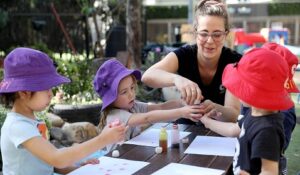
Council-run childcare centres are racking up big financial losses in their struggle to stay open without access to the Commonwealth Government’s JobKeeper program. The City of Whitehorse Council has had to shut two of its four childcare centres in Melbourne’s eastern suburbs, and is forecasting a $650,000 loss for the current quarter. Thirty-one staff at+
Posted 29 May, 2020 -
The Australian Motor Association wants to work with local government to help develop Motocross, Enduro, Supermoto and other facilities for its members. The AMA says its goal is to increase participation of women, children, indigenous Australians, and people with disabilities in its activities and that it has “hundreds of clubs and thousands of members across+
Posted 29 May, 2020 -
Councils that work to empower young people and foster their engagement in community and civic affairs are being invited to send two individuals to a virtual workshop series in June. The series is aimed at providing young Australians with practical tools to help build their communities, and is being organised by Ripple, a new platform+
Posted 29 May, 2020 -
The Energy Efficiency Council has called for upgrades of community and government buildings to stimulate jobs and rebuild a strong economy post the coronavirus pandemic. In a statement this week, the council and other peak bodies said: “If done well, these investments would durably lower energy bills; ease strains on a rapidly changing energy system;+
Posted 29 May, 2020 -
The Department of Veterans’ Affairs and the Older Persons Advocacy Network are hosting free webinars to publicise support services for veterans and their families. The fourth webinar in the series (scheduled for 16 June) will canvass aids, equipment and home modification to support clients to live independently at home. Participants need to register for this+
Posted 29 May, 2020


